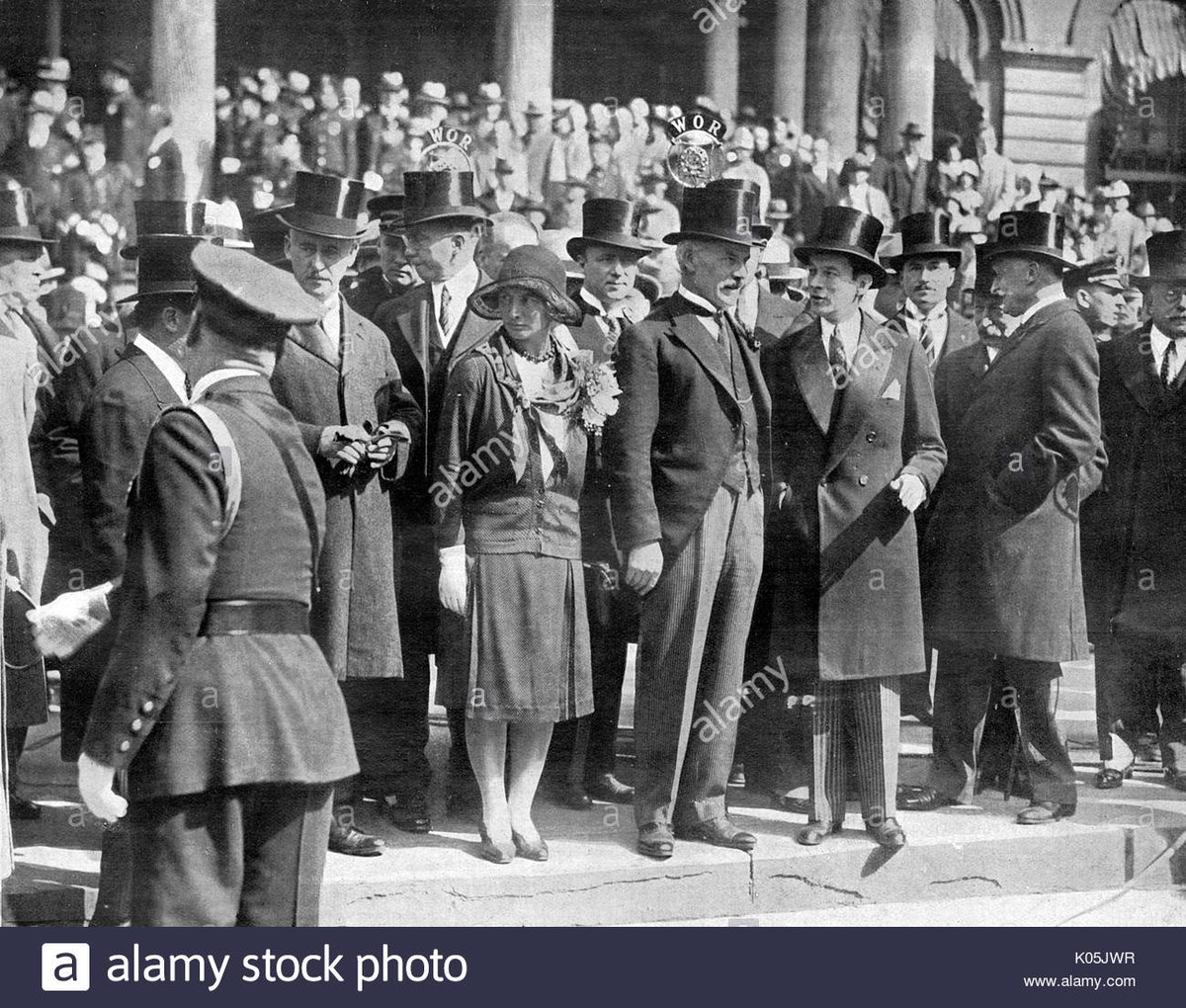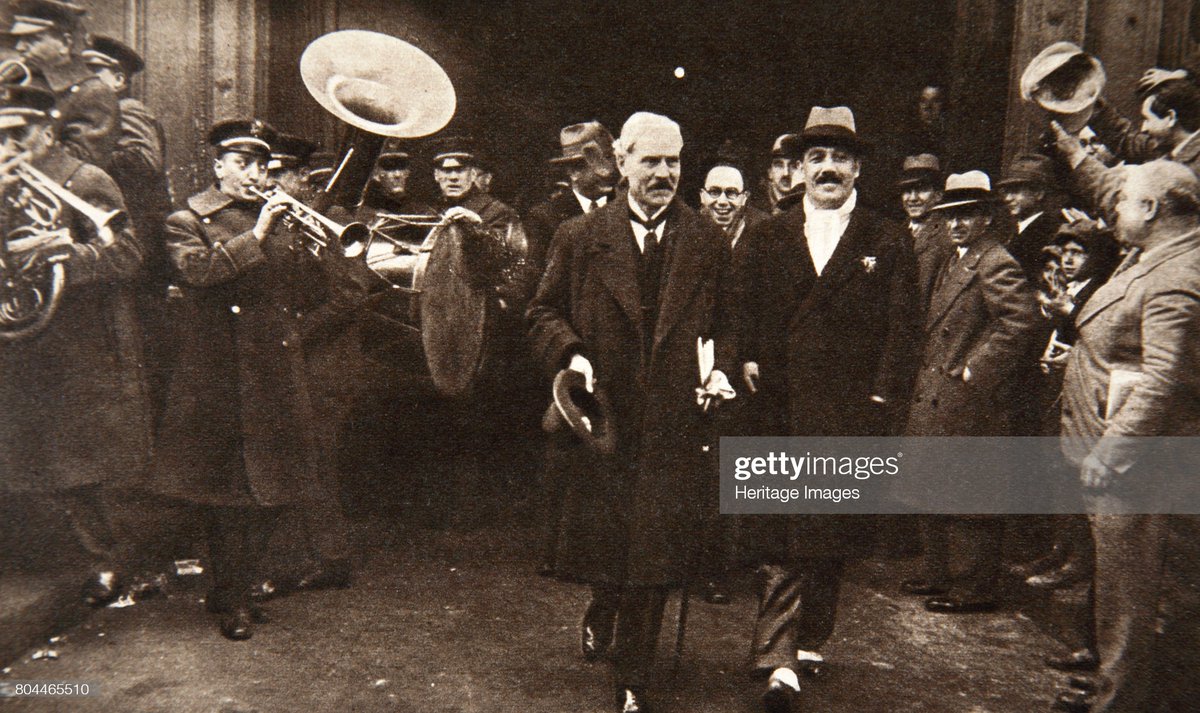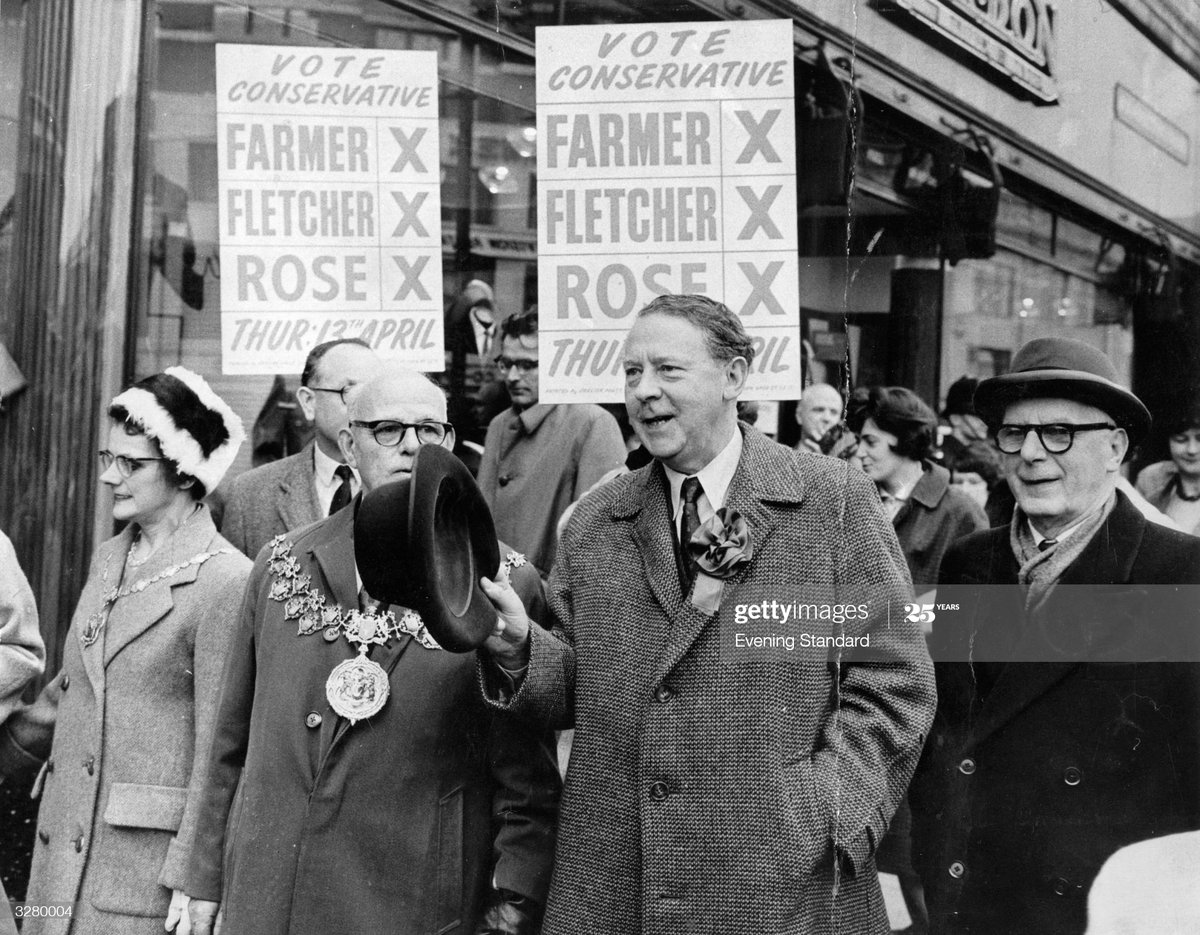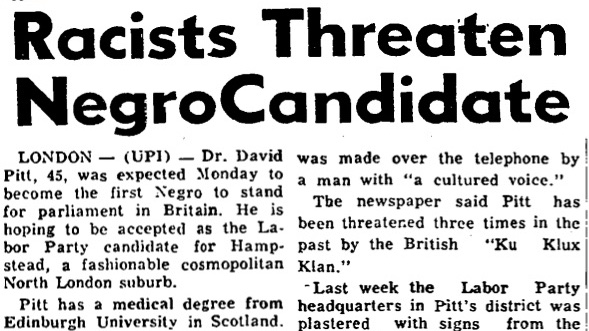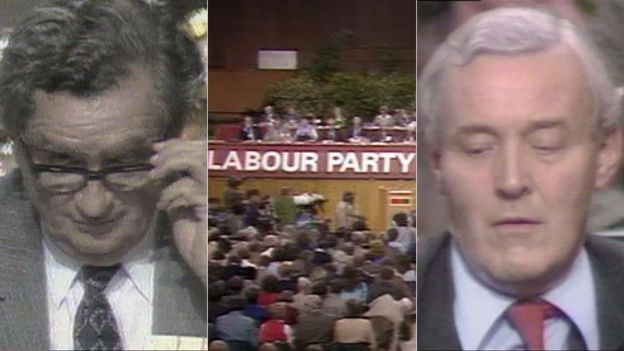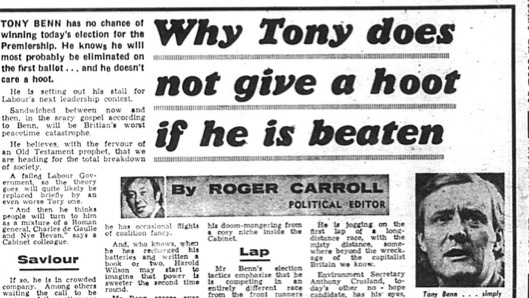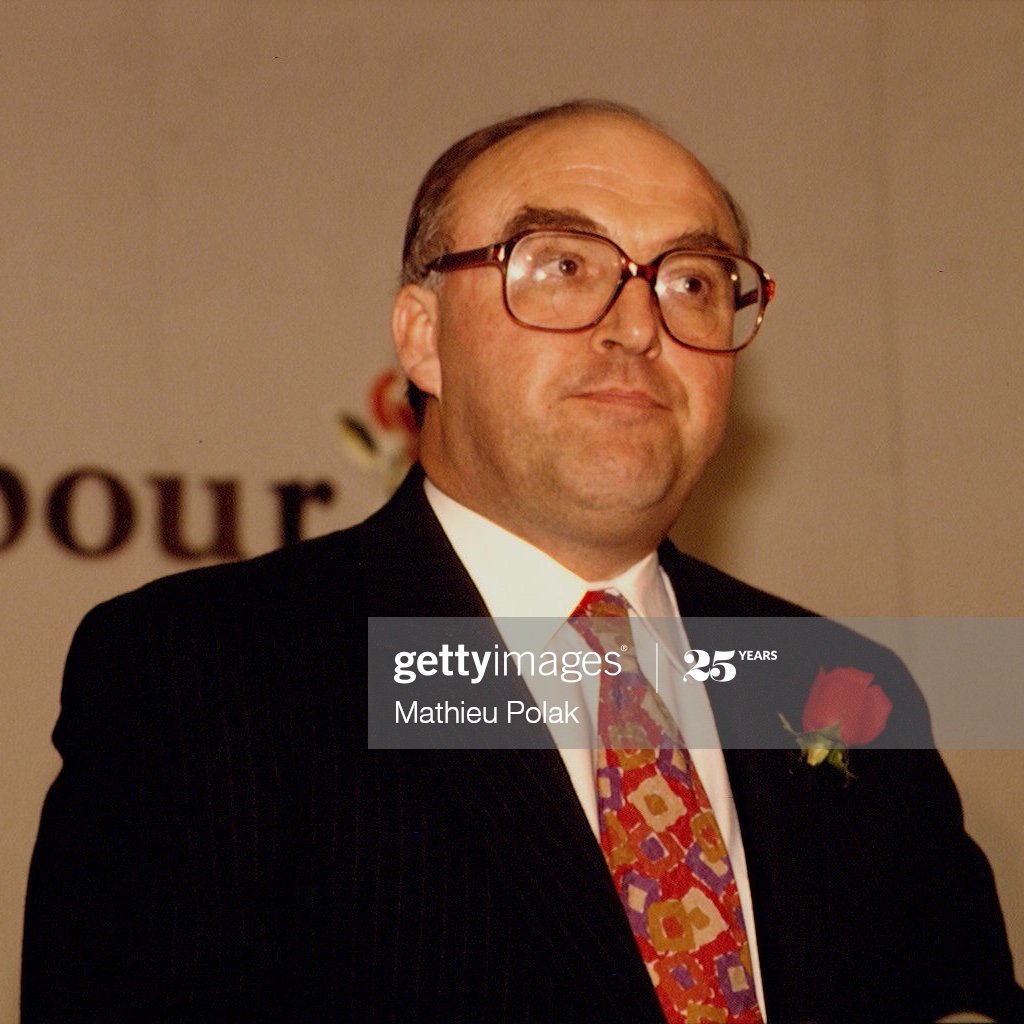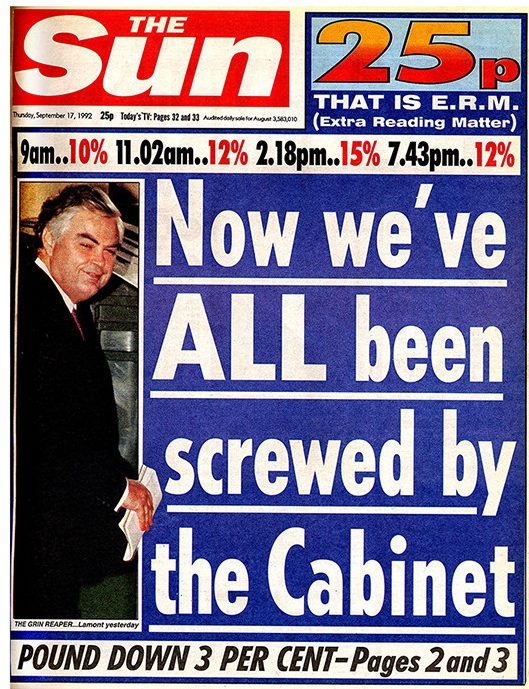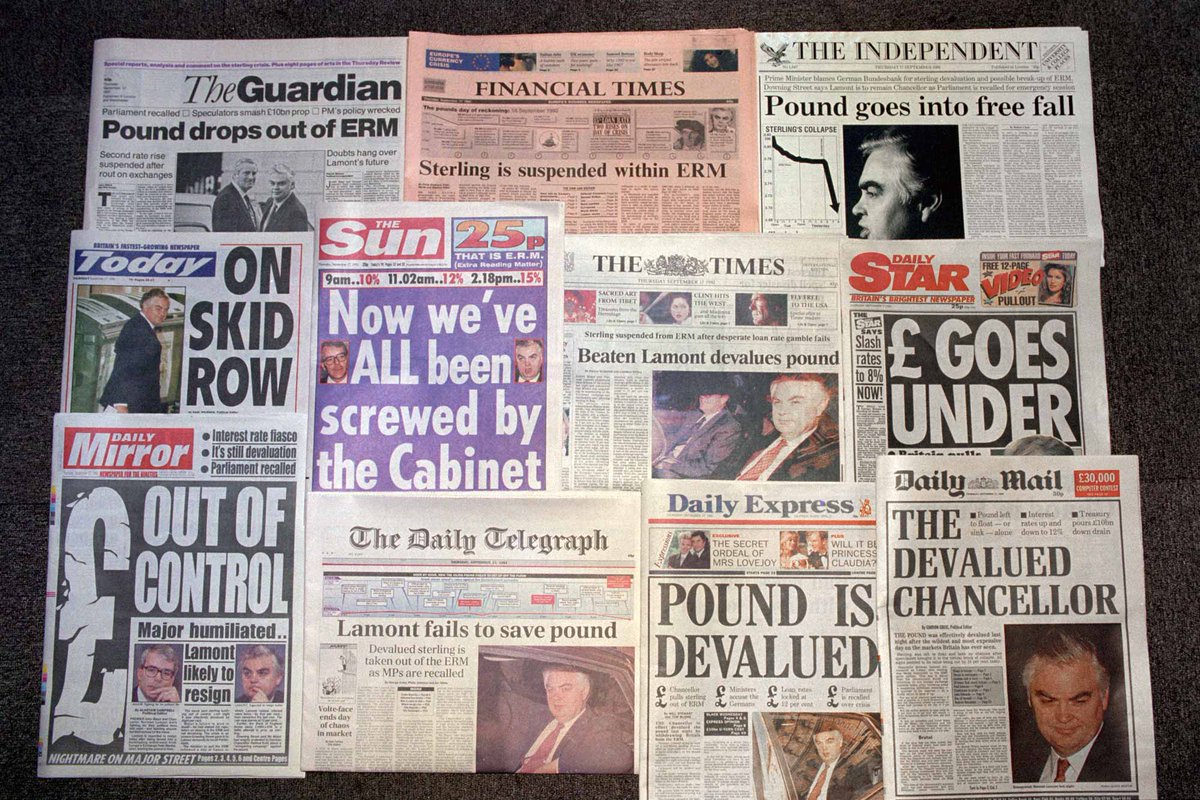
#OTD 1950. General Election. Labour add over one million votes – but reduce their majority from 146 to an unworkable five. 84% turn out to vote.
Despite winning big in the party’s industrial heartlands there is a major swing to the Tories in Middle England
Full Thread 👇
Despite winning big in the party’s industrial heartlands there is a major swing to the Tories in Middle England
Full Thread 👇

In 1945, Labour had become the party of whole nation – bringing middle class voters with it for the first time.
thecritic.co.uk/1945-at-75-lab…
thecritic.co.uk/1945-at-75-lab…
Infamously, the MP for St Helens, the Attorney General, Sir Hartley Shawcross declared:
“We are the masters at the moment, and not only at the moment, but for a very long time to come”
“We are the masters at the moment, and not only at the moment, but for a very long time to come”

Figures such as Herbert Morrison argued that the second election was “more important than 1945”.
Any “socialist programme must be a programme of reality”. They should make it “as attractive as we can to ourselves” but “we must also make it attractive to public opinion.”
Any “socialist programme must be a programme of reality”. They should make it “as attractive as we can to ourselves” but “we must also make it attractive to public opinion.”

The election of 1950 would be fought in the aftermath of landmark reforms on health, nationalisation, education and welfare added up to over 340 Acts of Parliament.
Yet there was media criticism that – the “hastily devised and complicated bills” had “laid itself open to the charge that it was neglecting the running of the economic machine”.
One of Labour’s great fears in the 40s was that a left-flank could alienate it from its new voters.
They spent a great deal of time distancing themselves from the Communist Party – particularly when a dock strike threatened food supplies.
They spent a great deal of time distancing themselves from the Communist Party – particularly when a dock strike threatened food supplies.
Attlee was criticised for siding with the Tory press when he accused the dockers of creating “a strike against your mates, a strike against the housewife, a strike against the ordinary common people who have difficulties enough now”. 
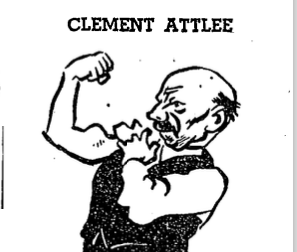
Attlee accused Communists within the trade union movement of trying to upset Britain’s “precarious” economy with “instruments of an alien dictatorship.”
In Grimsby, Morrison criticised the “socialist simpletons” who wanted further co-operation with Communists.
In Grimsby, Morrison criticised the “socialist simpletons” who wanted further co-operation with Communists.

Herbert Morrison went further, describing the Communists as “The Britain is Wrong Party”
“They have not the slightest consideration for the well-being of the country. For British communists there is only one country which is always right and it is not this country”
“They have not the slightest consideration for the well-being of the country. For British communists there is only one country which is always right and it is not this country”

And by 1947, there were rumours of a potential leadership coup against Attlee.
George Brown, the future Foreign Secretary, began a campaign the ‘Attlee Must Go’ campaign.
In response, Bevin urged Attlee to do more networking on the backbenches and visit the Smoking Room
George Brown, the future Foreign Secretary, began a campaign the ‘Attlee Must Go’ campaign.
In response, Bevin urged Attlee to do more networking on the backbenches and visit the Smoking Room

An Attlee appearance in the smoking room was rare.
He struggled for conversation – and an awkward silence ensued until one MP asked him about the Worcester-Yorkshire cricket match:
“In an instant his eyes lit up.”
He struggled for conversation – and an awkward silence ensued until one MP asked him about the Worcester-Yorkshire cricket match:
“In an instant his eyes lit up.”

In 1947, the @ConHistGrp adopted The Industrial Charter which maintained many of the great controls on industry.
In a dig at Shawcross, their manifesto declared “We shall act not for a section but for the nation. We shall not be the masters of the people but their servants.”

In a dig at Shawcross, their manifesto declared “We shall act not for a section but for the nation. We shall not be the masters of the people but their servants.”


The Conservative Party attempted to neutralise the myths of the 1930s.
“They tried to make out that before they got a majority the whole history of Great Britain, so long admired and envied throughout the world, was dark and dismal.”
“They tried to make out that before they got a majority the whole history of Great Britain, so long admired and envied throughout the world, was dark and dismal.”
The Labour manifesto – Let Us Win Through Together – focussed on the secondary items for nationalisation such as sugar and cement.
Polling showed that even among Labour voters – just 38% of them thought it was worthwhile.
Polling showed that even among Labour voters – just 38% of them thought it was worthwhile.

Throughout 1949, the Conservatives attacked further nationalisation to industry and had a popular ally in the Tate & Lyle sugar company.
A campaign fronted by ‘Mr Cube’ caught public imagination
A campaign fronted by ‘Mr Cube’ caught public imagination

As the election began, the bookmakers made Labour a good bet: 4/7 favourites.
At a dinner held by the Chancellor Stafford Cripps, the Labour Cabinet took their own bets on the margain of victory.
At a dinner held by the Chancellor Stafford Cripps, the Labour Cabinet took their own bets on the margain of victory.

Eleven of the fourteen guests predicted a Labour victory of more than 70.
Only Hugh Gaitskell (win by 30) and Douglas Jay (defeat by 30) anticipated a difficult road ahead.
Only Hugh Gaitskell (win by 30) and Douglas Jay (defeat by 30) anticipated a difficult road ahead.
Attlee was said to have travelled 1,300 miles, making 34 speeches to over 100,000 people live.
His biographer, Kenneth Harris, claims that he didn't use a single note.
His biographer, Kenneth Harris, claims that he didn't use a single note.
Attlee was driven by his wife VI around the country to address eight meetings a day.
The “slightly dilapidated car that seems the epitome of the family car that every home-loving man either has in his garage or would like to have”.
The “slightly dilapidated car that seems the epitome of the family car that every home-loving man either has in his garage or would like to have”.

Attlee warned that a return to Churchill would mean
“Prosperity for the few, hard times for the many”.
“Prosperity for the few, hard times for the many”.

At Birmingham Attlee talked up Labour’s impressive by-election record from 45 onwards.
“35 matches played, 35 won, no draws, no losses, even Aston Villa can’t match that”
“35 matches played, 35 won, no draws, no losses, even Aston Villa can’t match that”

Labour turned to the novelist J.B Priestley to present a series of radio broadcasts to the middle class voters.
He admitted, "you have had a tough time".
He then urged them to "grumble with him" about the state of the country before arguing that Labour shared their concerns
He admitted, "you have had a tough time".
He then urged them to "grumble with him" about the state of the country before arguing that Labour shared their concerns
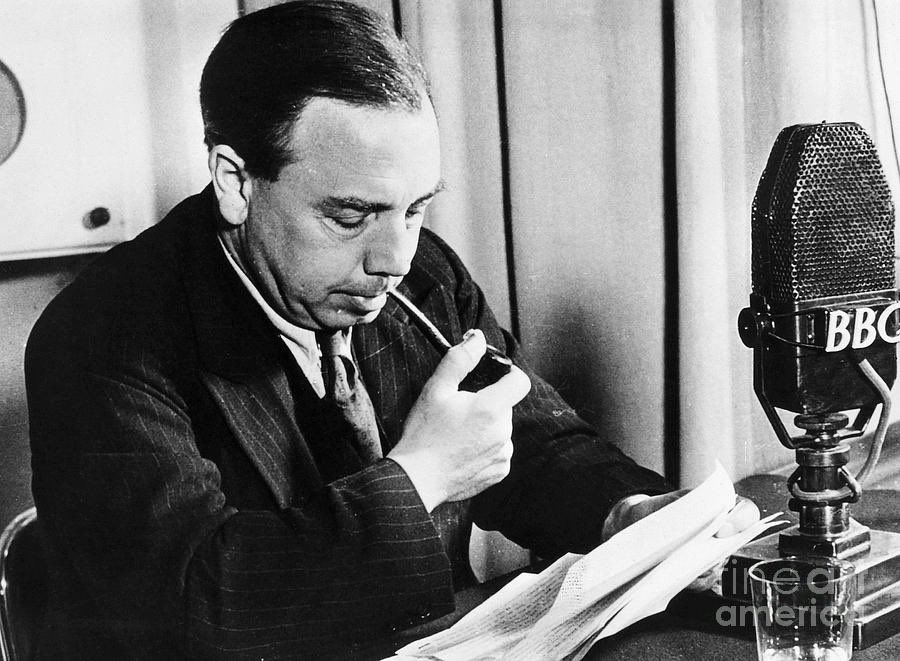
The Conservatives employed the services of their candidate - Dr Charles Hill - a popular voice on the radio in the war. 

The Daily Mail thought it was the most important election of the 20th century.
Labour “are the men who, with hatred in their hearts, will seek to extinguish the middle classes and will seek to gag and stifle the free press, which is still a servant of a free democracy.”
Labour “are the men who, with hatred in their hearts, will seek to extinguish the middle classes and will seek to gag and stifle the free press, which is still a servant of a free democracy.”
Morgan Phillips, pointed out that Labour candidates were from all classes:
“55 lawyers, 34 lecturers, 34 teachers, 27 journalists/authors, 19 company directors, 14 farmers, 15 doctors/dentists, 55 trade union officials, 37 miners, 19 transport workers and 10 engineers”.
“55 lawyers, 34 lecturers, 34 teachers, 27 journalists/authors, 19 company directors, 14 farmers, 15 doctors/dentists, 55 trade union officials, 37 miners, 19 transport workers and 10 engineers”.

Morrison opened the campaign with an appeal to both parts of the Labour coalition.
He reminded the affluent that “a nation of blackcoats alone could not live.” At the same time, he warned the miners to cut out “the topsy-turvy snobbery which looks down on those who get on.”
He reminded the affluent that “a nation of blackcoats alone could not live.” At the same time, he warned the miners to cut out “the topsy-turvy snobbery which looks down on those who get on.”

In Dartford, there was a glimpse into the future...
A Young Margaret Roberts promised to champion the voiceless "small shopkeepers" who formed "the strength and backbone of England".

A Young Margaret Roberts promised to champion the voiceless "small shopkeepers" who formed "the strength and backbone of England".
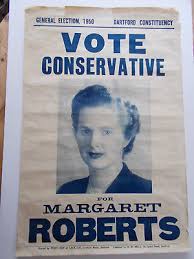

• • •
Missing some Tweet in this thread? You can try to
force a refresh

